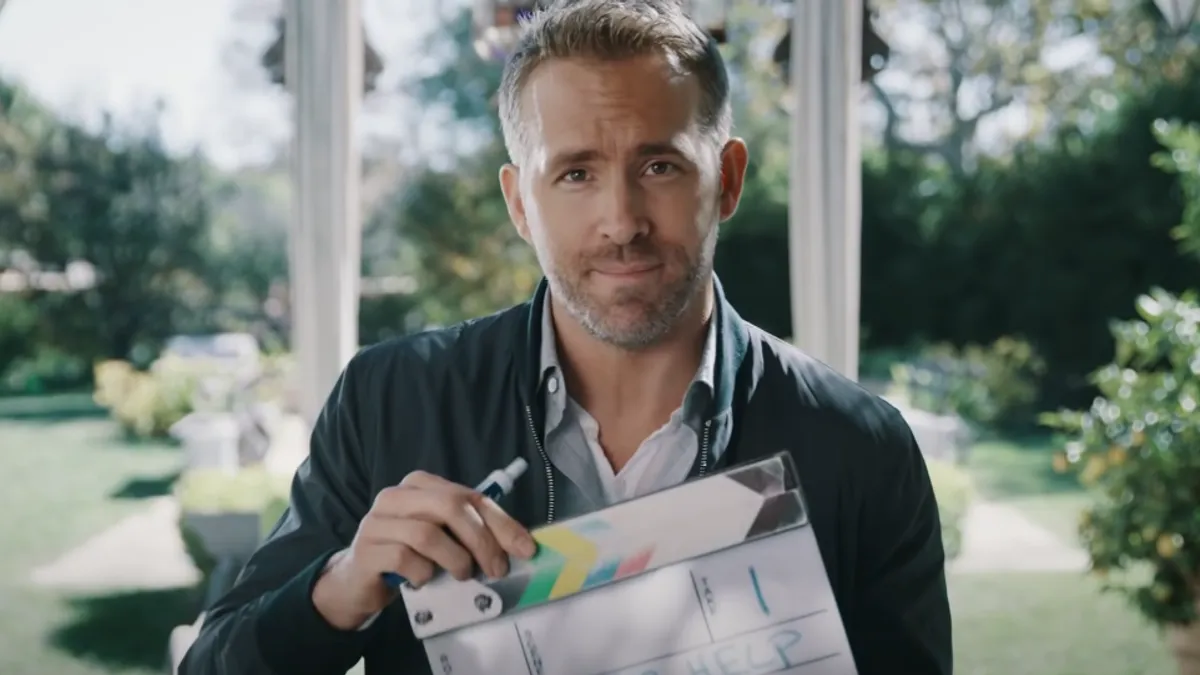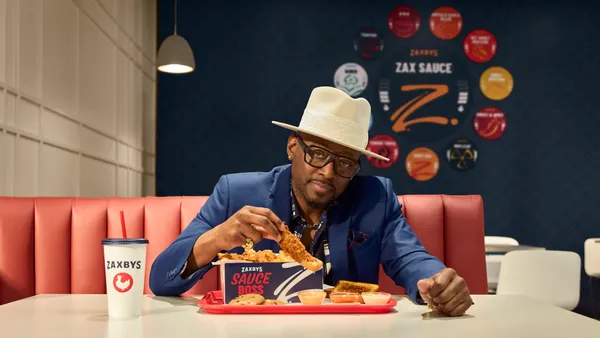There is a reason Match.com's commercial featuring Satan paired with his perfect companion, the year 2020, made it onto year-end best-of lists. The spot took the identifiable brand attribute of "there's someone for everyone" and connected it to the cultural zeitgeist of "2020 was a dumpster fire" in under 90 seconds. It was marketing genius.
So, who is the ad industry heavyweight behind this buzzy piece of marketing? Lee Clow? David Lubars? David Droga? Alex Bogusky?
None of the above. The answer is Hollywood star Ryan Reynolds and his side-project agency, Maximum Effort. For the second year running, Reynolds, thinking quickly and with few layers, had created one of the year's buzziest commercials. The previous year's was a spot for Aviation gin that piggybacked on Peloton's controversial 2019 holiday ad.
“There’s always a desire for agencies to be culturally connected, and Hollywood creates our culture in many ways."

Avi Dan
founder of Avidan Strategies
Now it seems others are trying to get in on the game. Shaquille O'Neal, Tony Hawk, Dwayne "The Rock" Johnson and Pitbull are just some of the notable names putting their star power behind marketing agencies. Not surprisingly, the veteran ad executives charged with running these agencies say they are more than vanity projects.
"We see this partnership as offering powerhouse creativity and connection with the culture," said Sandra Alfaro, executive vice president and managing partner at Pitbull's venture with Horizon Media, 305 Worldwide. "That's an important combination."
The vein of culture
Lending celebrity cache to the making of ads isn't necessarily a new trend, noted Avi Dan, founder of marketing search consulting firm Avidan Strategies. In the 1970s, famed newsman Chet Huntley was a partner at Levine, Huntley, Schmidt and Beaver. Coca-Cola enlisted the Creative Artists Agency to create ads in the early 1990s, and when that deal fell apart, the brand continued with an agency in which The Walt Disney Co. had a minor stake. More recently, Spike Lee and DDB started Spike DDB as a multicultural agency in 1997, and "branded content" became the buzzwords of the early 2000s. Even today, brands such as Neutrogena and Old Spice are creating their own content studios.
"It has to do with the desire of Madison Avenue to tap into the vein of culture and where culture is being formed," Dan said. "There's always a desire for agencies to be culturally connected, and Hollywood creates our culture in many ways. The logical extension of that is agencies that are [directly connected to] celebrities."
Omid Farhang, founder of Majority in Atlanta, was quick to note his agency is "not the Shaq spokesperson agency." Instead, he said, the idea for the business was born out of a desire to build a shop that could create opportunities for multicultural creatives that may not have considered advertising as a career, nor followed the traditional path to get there.
"We want to open doors for people who have been historically underrepresented in this business that we love," Farhang said.
And, if a basketball superstar's name can open a few doors to make that vision come true, so much the better.
"It would be naive to think that not having him [as a backer] isn't having an impact," Farhang said. "CMOs are fans of pop culture, just like the rest of us."
Creative outlet
For what it's worth, it is generally understood that most celebrities aren't deeply involved in the agencies' day-to-day operations.
"[Tony Hawk] doesn't care about 100-page strategic decks, nor does he know all of the marketing acronyms and jargon, and that's awesome," said Adam Wilson, co-founder and head of strategy and creative at Hawk's agency, D/CAL. "Most clients understand that this isn't his main business."
"Shaq has been doing just fine without me," Farhang said. "We do not have a business plan of siphoning brands away from their business partners. We have a lot of respect for those agencies and the work that they do."
Still, as Reynolds has proved, an advertising agency can be a creative outlet for celebrities. Hawk was instrumental in putting together D/CAL's 2019 campaign for Bagel Bites, which poked fun at the professional skateboarder's previous relationship with the brand.
An agency investment can also give celebrities more control over how their personal brands may be used. Prior to starting his own agency, Tony Hawk had worked with other agencies and, per Wilson, felt that they didn't represent him or the brands well.
“Shaq is a guy who can connect the dots. He knows so many brands, and people, and has so many relationships.”

Omid Farhang
founder of Majority
Having spent time and care developing their images and connections to audiences and fans, celebrities find authentic representation to be incredibly important. And when the celebrity is synonymous with a culture, that authenticity takes on even more weight.
"There are many dimensions of culture," Alfaro said. "It's well beyond language. It's a belief system and a value system."
"We like to characterize ourselves as not a multicultural agency, but an agency of the culture," Farhang said. "Majority started as an idea, not a celebrity. We don't want to forget why we went into the business in the first place."
Opening doors
The challenge, of course, will be for these agencies to create identities that are separate from their celebrity investors, which is no small feat.
"The celebrity doesn't bring a whole lot to the business, other than opening some doors," Dan said. "I don't see Shaq writing copy."
He is not, Farhang confirmed. But he does have an interest in making Majority successful.
"Shaq is a guy who can connect the dots. He knows so many brands, and people, and has so many relationships," Farhang said. "He is involved in a lot of ways you wouldn't know about. I've been pleasantly surprised by his engagement."
Engaged or not, the celebrity's presence won't be the reason for the agency's success, Dan said. Like all agencies, they will have to live and die on their ideas.
"People may want to include them because they want to meet Shaq," Dan said. "But that's not going to win the business."
Which suits these agency executives just fine.
"Tony's notoriety is a bonus and it opens doors," Wilson said. "But clients don’t give a shit about [celebrity]. They have problems that need to be solved."
"Celebrities are not ideas," Farhang said. "Our business model is based on winning our own business and going our own way."






















